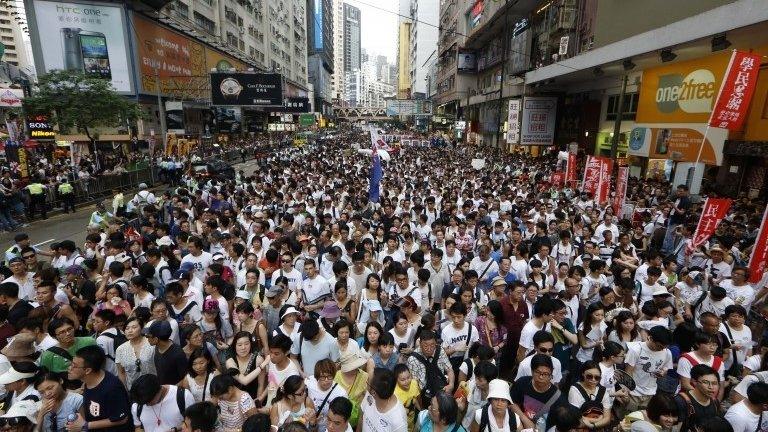Hong Kong submits electoral reform report to Beijing
- Published
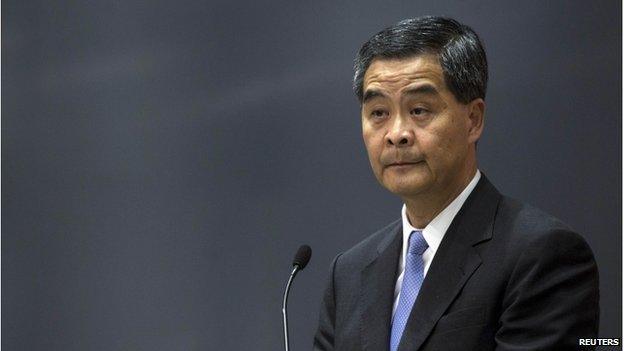
Mr Leung said in his report submitted to Beijing that electoral reform is needed in Hong Kong
Hong Kong has kick-started a political reform process by submitting a report to Beijing about the prospect of universal suffrage in the territory.
Chief Executive Leung Chun-ying formally acknowledged that every eligible citizen should be able to cast a vote for the city's next leader.
But he also said that mainstream Hong Kong society agreed with Beijing on how electoral reform should proceed.
This drew fire from activists who said he had misrepresented public opinion.
China has promised to change the way the chief executive of Hong Kong is selected. Currently the person for that post is chosen by a 1,200-member committee.
Beijing has said the Hong Kong public will have universal suffrage by 2017 and will be able to directly vote in their chief executive.
However, Beijing has also stipulated that voters can only choose from a list of candidates pre-selected by a nominating committee.
Activists say this is not true democracy, and fear China will use the committee to screen out candidates it disapproves of. They have called for the Hong Kong public to be given the right to nominate candidates.
Tens of thousands took part in a pro-democracy rally on 1 July and nearly 800,000 took part in an unofficial referendum on democratic reform in June.
Mr Leung said in his report that "there is a need to amend the method" for selecting the chief executive in 2017 in order to attain the aim of universal suffrage."
He said that "mainstream opinion" was that only a nominating committee should have the power to choose candidates, as this is stated in the Basic Law, Hong Kong's mini-constitution.
But he did add that there are "considerable views" that an element of public nomination should be allowed.
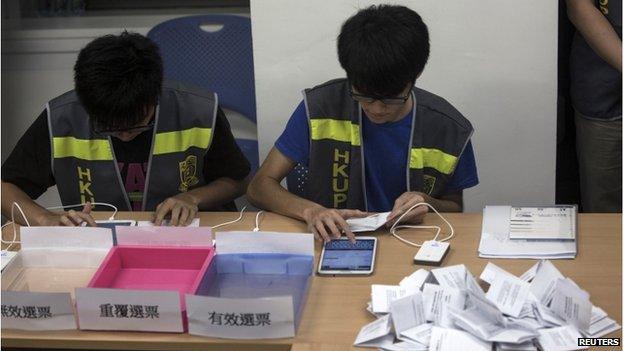
Nearly 800,000 people in Hong Kong voted in an unofficial referendum in June on democratic reform
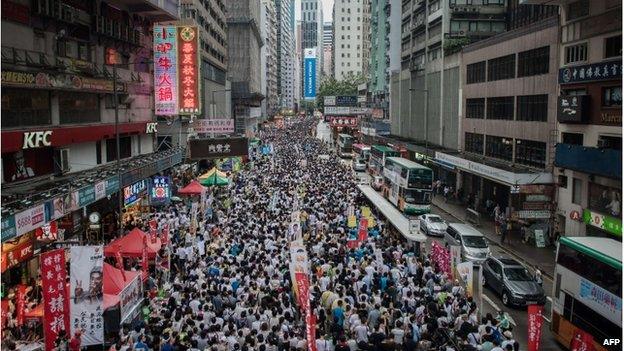
Tens of thousands of people took to the streets on 1 July for a pro-democracy rally
Mr Leung's comments were met with swift derision by pro-democracy group Occupy Central, the organisers of June's referendum.
It said on its Twitter account, external that Mr Leung "has an amazing ability to ventriloquise 'majority opinion'" and made "questionable assertions" regarding the community's views.
The Hong Kong presented in his report is one "many HK people won't recognise", it said, adding that it was as if the Chinese government had "dictated" views to the Hong Kong government.
Mr Leung's report was submitted after a five-month public consultation.
The Hong Kong government is expected to unveil its official plan for the 2017 election later this year.
Occupy Central has said it will mobilise 10,000 people for a sit-in protest in the city's financial district if that plan does not meet international standards for democracy.
- Published18 June 2015
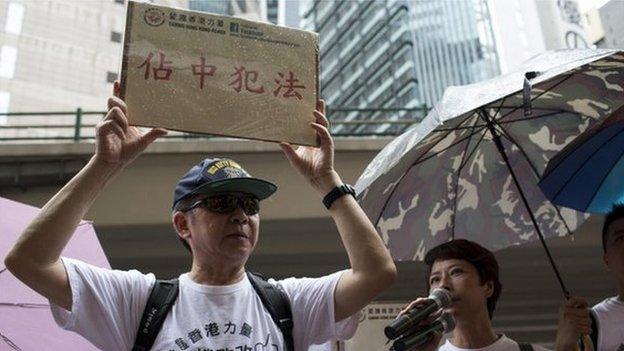
- Published30 June 2014
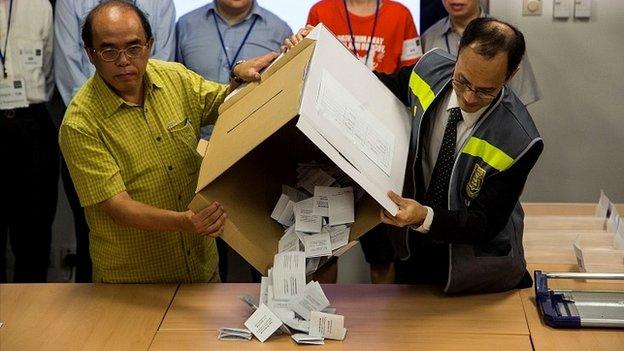
- Published2 July 2014
